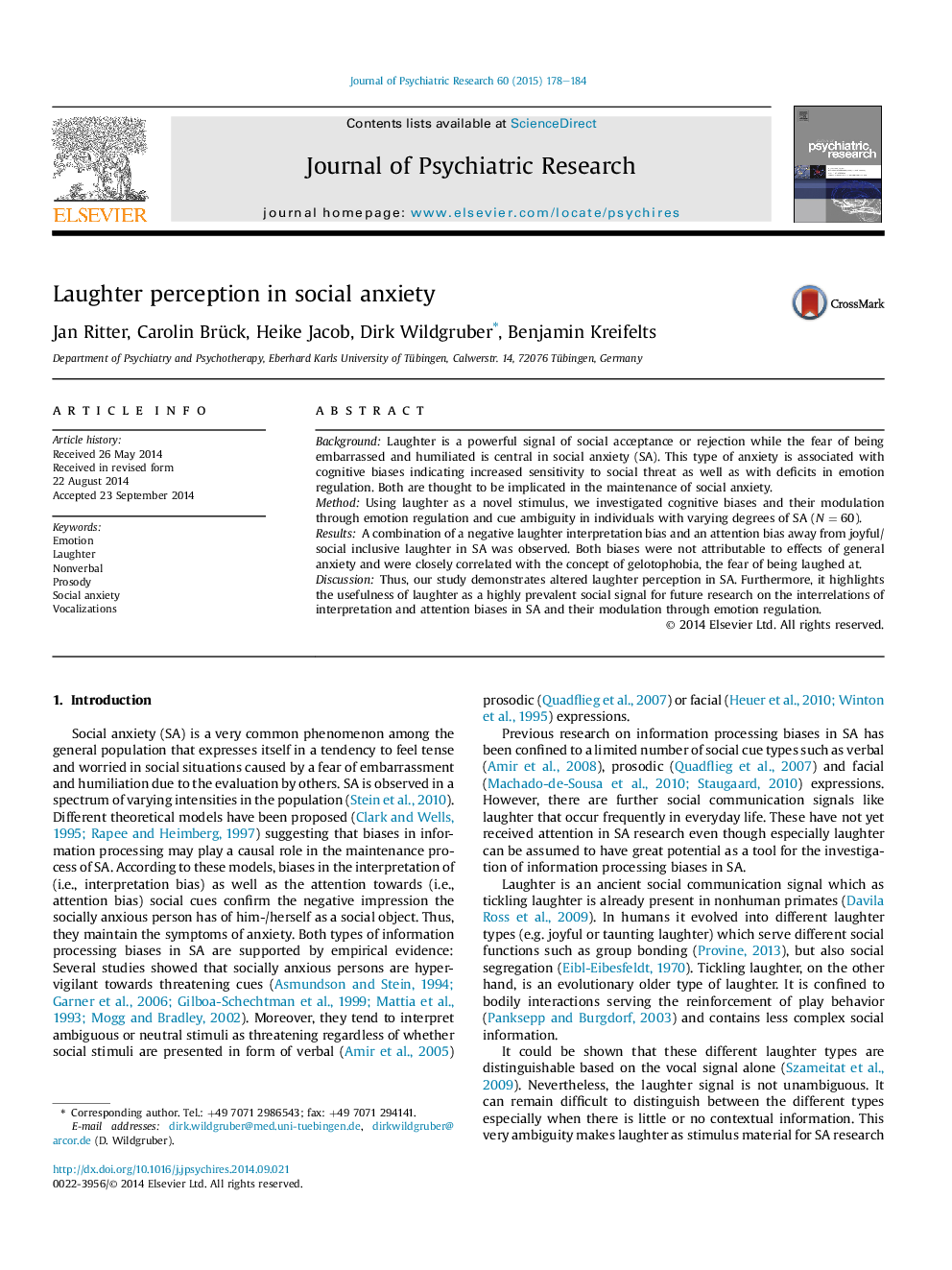| Article ID | Journal | Published Year | Pages | File Type |
|---|---|---|---|---|
| 327320 | Journal of Psychiatric Research | 2015 | 7 Pages |
•We used laughter as a novel stimulus to elucidate cognitive biases in social anxiety.•We observed a negative laughter interpretation bias in social anxiety (SA).•We observed an attention bias away from joyful/social inclusive laughter in SA.•Both biases were correlated with gelotophobia, the fear of being laughed at.
BackgroundLaughter is a powerful signal of social acceptance or rejection while the fear of being embarrassed and humiliated is central in social anxiety (SA). This type of anxiety is associated with cognitive biases indicating increased sensitivity to social threat as well as with deficits in emotion regulation. Both are thought to be implicated in the maintenance of social anxiety.MethodUsing laughter as a novel stimulus, we investigated cognitive biases and their modulation through emotion regulation and cue ambiguity in individuals with varying degrees of SA (N = 60).ResultsA combination of a negative laughter interpretation bias and an attention bias away from joyful/social inclusive laughter in SA was observed. Both biases were not attributable to effects of general anxiety and were closely correlated with the concept of gelotophobia, the fear of being laughed at.DiscussionThus, our study demonstrates altered laughter perception in SA. Furthermore, it highlights the usefulness of laughter as a highly prevalent social signal for future research on the interrelations of interpretation and attention biases in SA and their modulation through emotion regulation.
